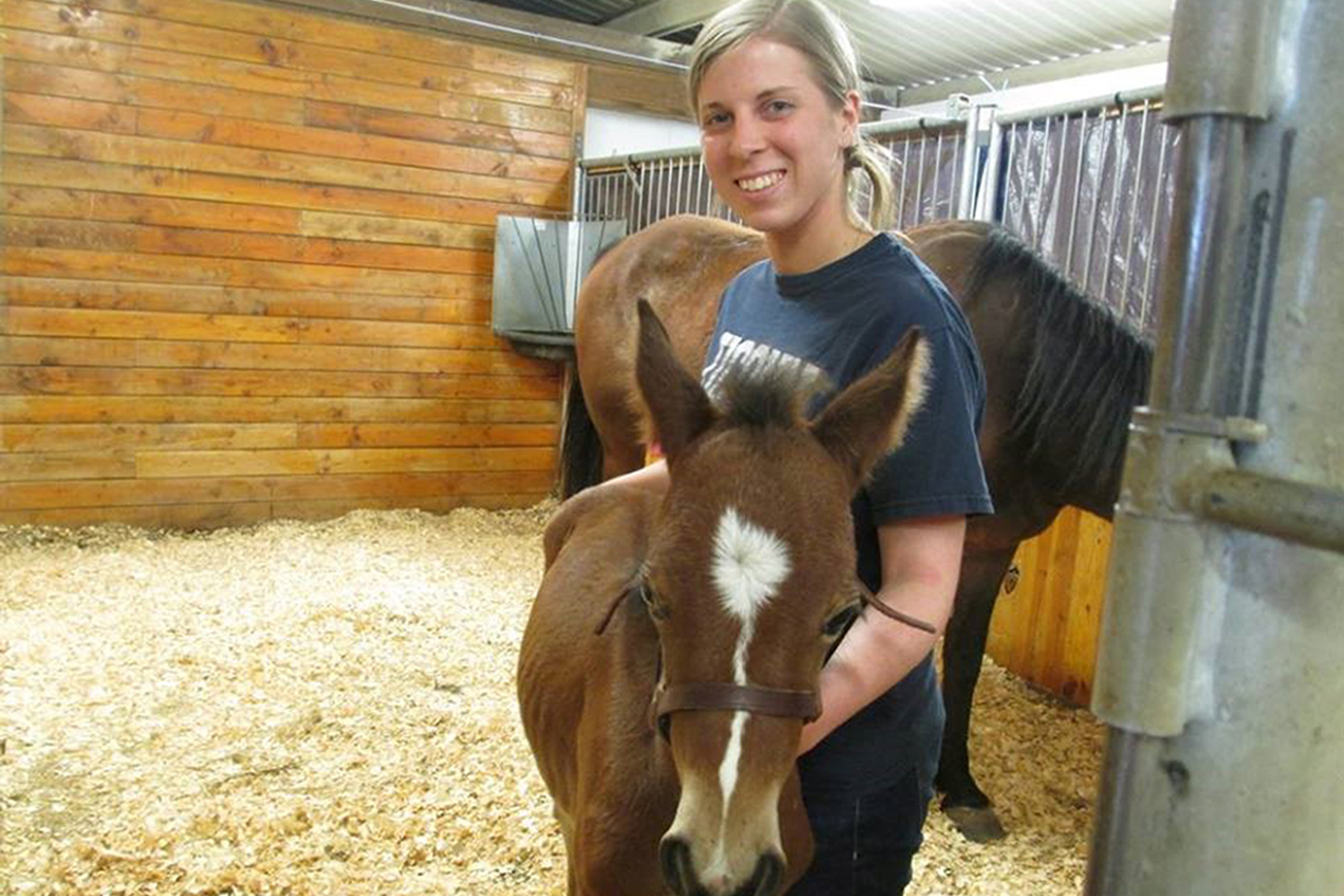Each spring, six or seven foals are born at one of the horse units on Horsebarn Hill Road. The entire process has developed into a wonderful learning experience for animal science students through an independent study commonly known as the Foal Watch Class.
Prior to developing the course, John Bennett, academic assistant and farm manager, and with Kathleen Pelletier, assistant farm manager, volunteered to watch over the birthing mares. Bennett created the course to offer students a unique hands-on experience.
“It’s a lifetime experience for the students,” Bennett says. “Some of them may never again watch a mare giving birth.”
On average, eight to ten students sign up for foal watch, although in 2015, the course topped out at fifteen students. Students meet once a week starting in January. The course begins with the assignment of each mare to students, estimation of a due date and the students’ becoming familiar with the mare and sire. Students attend lectures on foaling and are involved in the entire breeding process, which includes choosing mares to be bred for the following year, selecting a stallion and reviewing breeding contracts and methods of insemination.



